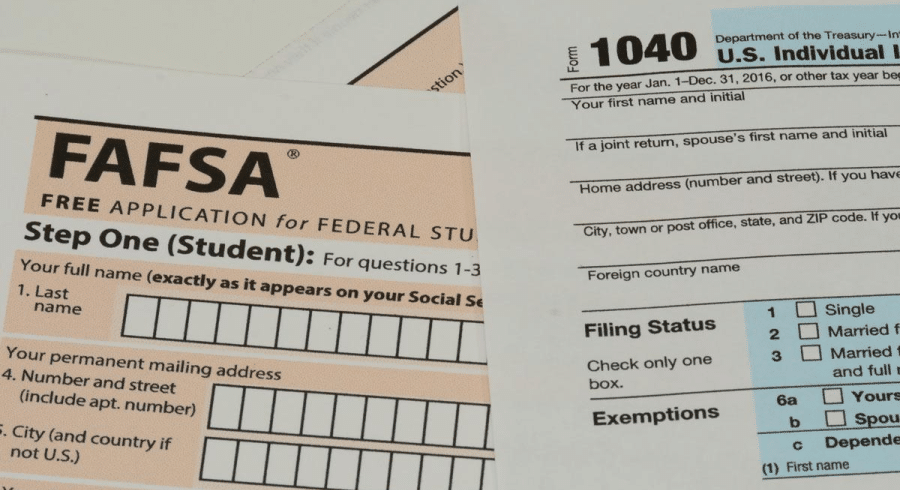How to Be a Smarter Investor in Uncertain Times
In a perfect world, logic would always guide our financial decisions. Emotions wouldn’t come into play.
But we don’t live in a perfect world. Far from it.
That means our emotions impact our financial choices more than we realize.1
Shockingly as much as 95% of our purchase choices are made subconsciously, driven by our emotions—as little as 5% are based in logic (and that’s when we’re in a good head-space and feeling comfortable and secure).2
When we’re faced with uncertainty, fear and instinct can take over and push logic right out of the window.3
Your brain will make you want to react quickly to protect yourself and avoid the pain you anticipate from potential losses.4
Ironically, these instincts often make things worse. Emotional reactions can lead to poor choices and the losses you were trying to avoid in the first place.5
The best way to avoid letting your hardwired biases take over? Use these strategies. They can help you fare better in any crisis. They may even make you a savvier investor.
6 SECRETS TO MAKE YOU A SMARTER INVESTOR
Table of Contents
- 1 6 SECRETS TO MAKE YOU A SMARTER INVESTOR
- 2 FINANCIAL LESSON: KEEP YOUR COOL & FOCUS ON THE LONG GAME WHEN CRISIS STRIKES
- 2.0.0.1 SOURCES & DISCLOSURES
- 2.0.0.2 1 Role of Emotion in Economic Behavior
- 2.0.0.3 2 The Subconscious Mind of the Consumer
- 2.0.0.4 3Logic and Emotion in Decision Making
- 2.0.0.5 4 Understanding Loss Aversion
- 2.0.0.6 5 The Role of Emotion in Economic Behavior
- 2.0.0.7 6 Influence of Emotion on Consumer Behavior
- 2.0.0.8 7 https://www.scientificamerican.com/article/what-is-loss-aversion/
- 2.0.0.9 8 Framing Bias in Trading and Investing
- 2.0.0.10 9 Anchoring in Decision Making
- 2.0.0.11 10 Financial Decision Making and Emotion
- 2.0.0.12 11 Understanding Loss Aversion
- 2.0.0.13 Risk Disclosure: Investing involves risk including the potential loss of principal. No investment strategy can guarantee a profit or protect against loss in periods of declining values. Past performance does not guarantee future results.
- 2.0.0.14 This material is for information purposes only and is not intended as an offer or solicitation with respect to the purchase or sale of any security. The content is developed from sources believed to be providing accurate information; no warranty, expressed or implied, is made regarding accuracy, adequacy, completeness, legality, reliability, or usefulness of any information. Consult your financial professional before making any investment decision. For illustrative use only.
- 2.0.0.15 Opinions expressed are subject to change without notice and are not intended as investment advice or to predict future performance. These are the views of Finance Insights and not necessarily those of the named representative or firm, and should not be construed as investment advice.
1. AVOID THE OVERCONFIDENCE TRAP
Overconfidence is a killer. In fact, research shows that the more experience you have as an investor, the more overconfident you tend to be.6
Stay realistic and grounded by a strategy. Get advice before making big decisions.
2. FORCE EMOTIONS INTO THE BACKSEAT
Losing money hurts. The truth is that the pain of losses can actually be more intense than any satisfaction from gains. Economists call that “loss aversion.”7 The pressure of anxiety or uncertainty can lead to irrational choices that actually work against our big-picture financial goals.
Don’t give into fear or panic when they show up. Focus on logic and rely on your professional for guidance.
3. FRAME PERFORMANCE IN A MORE MEANINGFUL WAY
Framing is everything when it comes to evaluating performance. That’s because the way information and events are presented to us can sway our perception and influence our decisions.8
Look beyond short-term outcomes when framing performance. Think about your longer-term goals and the progress you are making towards them, even when short-term corrections slow your progress.
4. NEUTRALIZE YOUR RECENCY BIAS
Recent events usually influence you more than those in the distant past. Why? The human brain remembers recent events more clearly and gives them outsized weight when making decisions. Your brain can mislead you by expecting more of what you’ve seen already. And that can lead to overconfidence and emotional decisions.9
Resist this tendency by remembering the market is constantly changing. Over the long term, bear markets recover. And no bull market lasts forever.
5. CONSIDER MULTIPLE PERSPECTIVES
With decision making, it’s natural to focus on one aspect or one piece of information as a starting point. Often, that can greatly influence your final choice. This is known as “anchoring bias,” which can give you tunnel vision. It can lead you to fixate on a single data point, like an investment’s price, while ignoring other key information.
To fight it, seek out more information. Think critically about multiple perspectives, and don’t forget to consider future potential.
6. SLOW DOWN & TAKE TIME TO THINK MORE DEEPLY
Humans like to make snap decisions. And, when you’re stressed out, you’re far more likely to make impulsive decisions. The problem is that “gut” decisions are made based on instinct, habit, and emotions, instead of logic and facts. When you’re in gut-decision mode, it can be much harder to make goal-oriented choices.10
Take your time when making financial decisions and let your brain shift into analytical mode. With a little time, emotions cool down, and you’ll typically consider more alternatives.11
We can’t foresee or control downturns or upswings. We can only control our mindset, our emotions, and our financial choices.
FINANCIAL LESSON: KEEP YOUR COOL & FOCUS ON THE LONG GAME WHEN CRISIS STRIKES
Markets and economies are never predictable or under our control. We can’t foresee or control downturns or upswings. We can only control our mindset, our emotions, and our financial choices.
That’s easy to lose sight of during periods of economic uncertainty and financial stress.
But, if you can focus on the long game and improve your mental game, you’ll come out stronger and more prepared.
That can make you less vulnerable to hardwired human biases and help you make better financial decisions, no matter what the markets are doing.
As a financial adviser, one of my most important jobs is to help you become a smarter, more capable investor. That involves using psychology and behavioral finance to help you learn more about how your brain works and improve your financial behaviors.
I’m also here to be an objective accountability partner. I talk my clients through emotional decisions, and I can be an important voice of reason and calm when markets are turbulent and it feels like the sky is falling.
If you’re curious about behavioral finance—or if you need a sounding board for a financial decision—I’m here for you. Don’t hesitate to call me at 800-840-5946.
I’d be happy to answer your questions and share some more advice.
SOURCES & DISCLOSURES
1 Role of Emotion in Economic Behavior
2 The Subconscious Mind of the Consumer
3Logic and Emotion in Decision Making
4 Understanding Loss Aversion
5 The Role of Emotion in Economic Behavior
6 Influence of Emotion on Consumer Behavior
7 https://www.scientificamerican.com/article/what-is-loss-aversion/
8 Framing Bias in Trading and Investing
9 Anchoring in Decision Making
10 Financial Decision Making and Emotion
11 Understanding Loss Aversion
Risk Disclosures: Investing involves risk including the potential loss of principal. No investment strategy can guarantee a profit or protect against loss in periods of declining values. Past performance does not guarantee future results. This material is for information purposes only and is not intended as an offer or solicitation with respect to the purchase or sale of any security. The content is developed from sources believed to be providing accurate information; no warranty, expressed or implied, is made regarding accuracy, adequacy, completeness, legality, reliability or usefulness of any information. Consult your financial professional before making any investment decision. For illustrative use only. Investing involves risk including the potential loss of principal. No investment strategy can guarantee a profit or protect against loss in periods of declining values. Past performance does not guarantee future results. The S&P 500 is an unmanaged composite index considered to be representative of the U.S. stock market in general. All index returns exclude reinvested dividends and interest. Past performance is no guarantee of future results. Indices are unmanaged and cannot be invested into directly. For illustrative purposes only.
Risk Disclosure: Investing involves risk including the potential loss of principal. No investment strategy can guarantee a profit or protect against loss in periods of declining values. Past performance does not guarantee future results.
This material is for information purposes only and is not intended as an offer or solicitation with respect to the purchase or sale of any security. The content is developed from sources believed to be providing accurate information; no warranty, expressed or implied, is made regarding accuracy, adequacy, completeness, legality, reliability, or usefulness of any information. Consult your financial professional before making any investment decision. For illustrative use only.
Opinions expressed are subject to change without notice and are not intended as investment advice or to predict future performance. These are the views of Finance Insights and not necessarily those of the named representative or firm, and should not be construed as investment advice.











